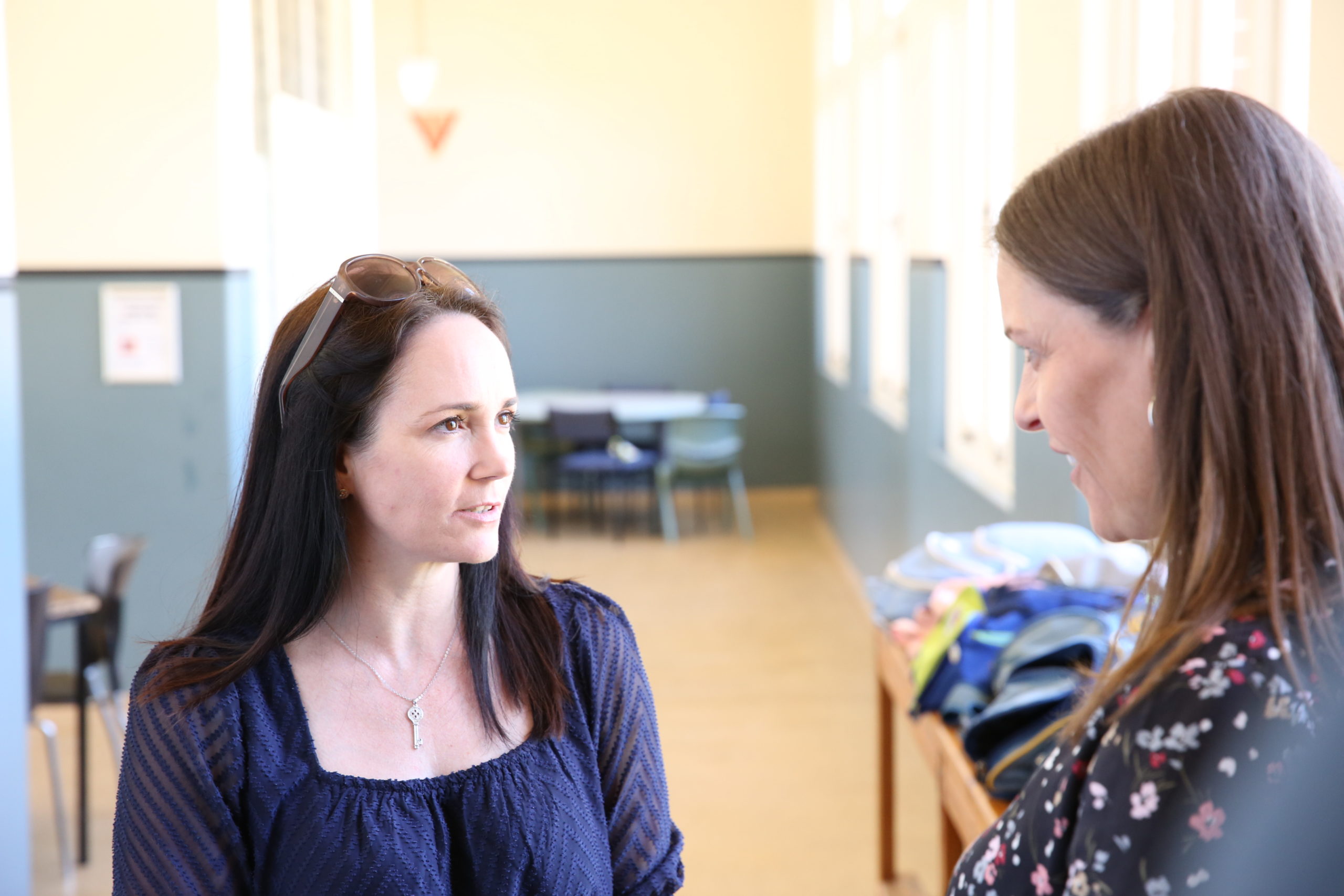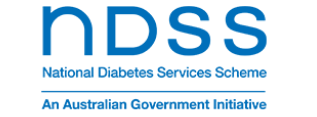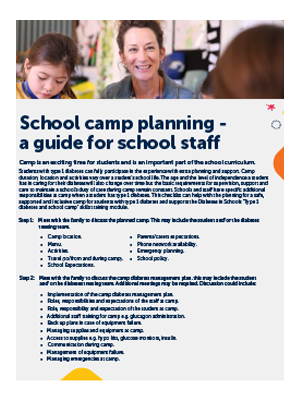Understandably, most students will want and should be given every opportunity to attend school camps or overnight excursions as a part of the school’s learning program.
Camps and excursions will vary from school to school and camp situations will vary between year groups and schools. Most camps for younger students may be close to medical facilities and some schools may invite parent/carer participation and support. For older students, camps may involve greater independence, no parent/carers, perhaps no nursing staff, more remote locations and often physically demanding situations over an extended time. For this reason, preparation requirements for camps will vary.
The following are guidelines to assist in supporting the student, parent/carer and schools to get the best out of school camps.
Students with type 1 diabetes can participate fully in a camp program with some planning. It is recommended that students who attend camp be reasonably independent in the care of their type 1 diabetes. However, if this is not the case then the school can consider what reasonable adjustments they can provide so that the student can be supported in their type 1 diabetes care on camp. Staff members attending camp are advised to become familiar with type 1 diabetes and the needs of their students by completing relevant or additional training.
Preparation
Planning for camp for a child with type 1 diabetes should commence at least one full school term prior to the camp. This allows enough time for clinic appointments, training and meetings
Planning check-lists
These check-lists are to assist schools to identify considerations for students with type 1 diabetes attending camp. We encourage families and school staff to meet and discuss these considerations early in the school year. These check-lists may highlight where students and/or staff require training or an update of specific type 1 diabetes management skills.
Camp management plan and action (emergency) plan
A camp diabetes management plan can be prepared by the student’s clinical treating team. This is important to provide specific advice about overnight glucose checking, type 1 diabetes equipment and adjustments to insulin doses for camp activities.
Using the camp management plan, families and school staff can then develop a coordinated plan to address any situations which may arise on a school camp.
This camp management plan will apply, in conjunction with the student’s regular action plan for the camp duration.
A copy of the student’s diabetes action plan, which ordinarily accompanies their diabetes management plan, should be attached to the camp management plan.
The action plan includes a flow chart with instructions for dealing with hypoglycaemia (a hypo) and hyperglycaemia (a hyper). This is an important document that should be made readily available for all staff during the camp duration.
Risk minimisation plan
Please refer to your school’s risk assessment process as relevant. See specific type 1 diabetes risks within.
Communication plan
There are two key communication points, before camp and during the camp. Prior to camp the parent/carers, and where applicable, the student should be directly involved in planning for any foreseeable events that require decisions and actions around the student’s type 1 diabetes management. During camp, the communication method and timing should be clearly defined. This will ensure families are kept informed if requested but also in which circumstances they can expect to be contacted to give management support to school staff. This communication will also outline and give consent in the situation where a student with type 1 diabetes may require external medical attention.









